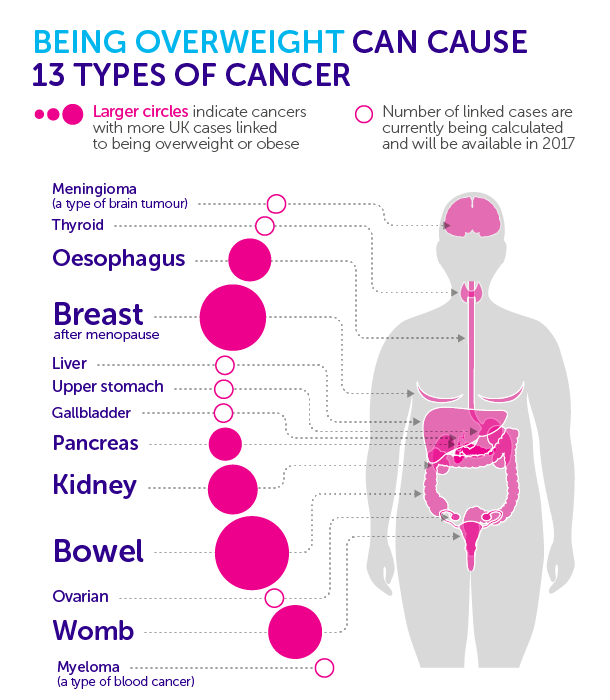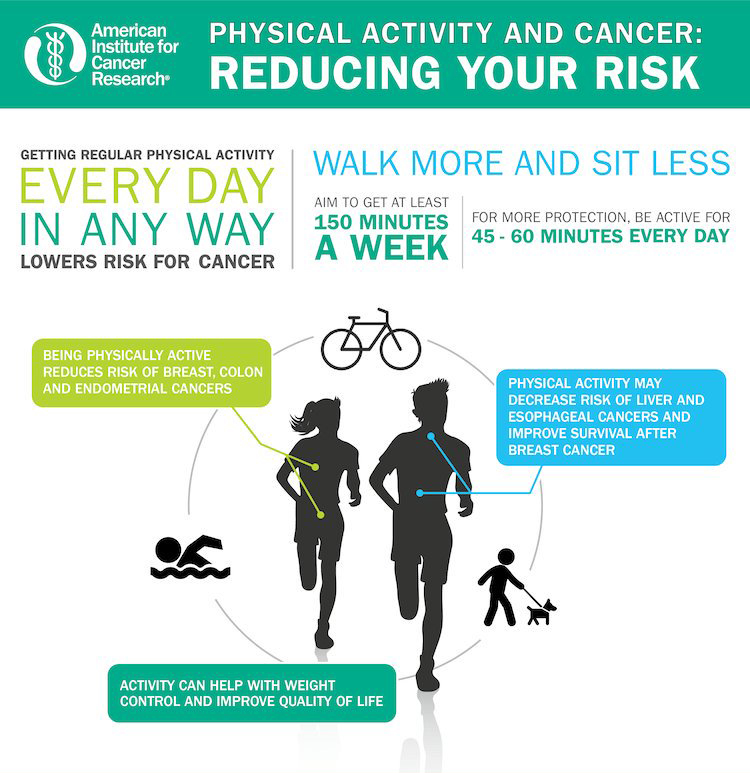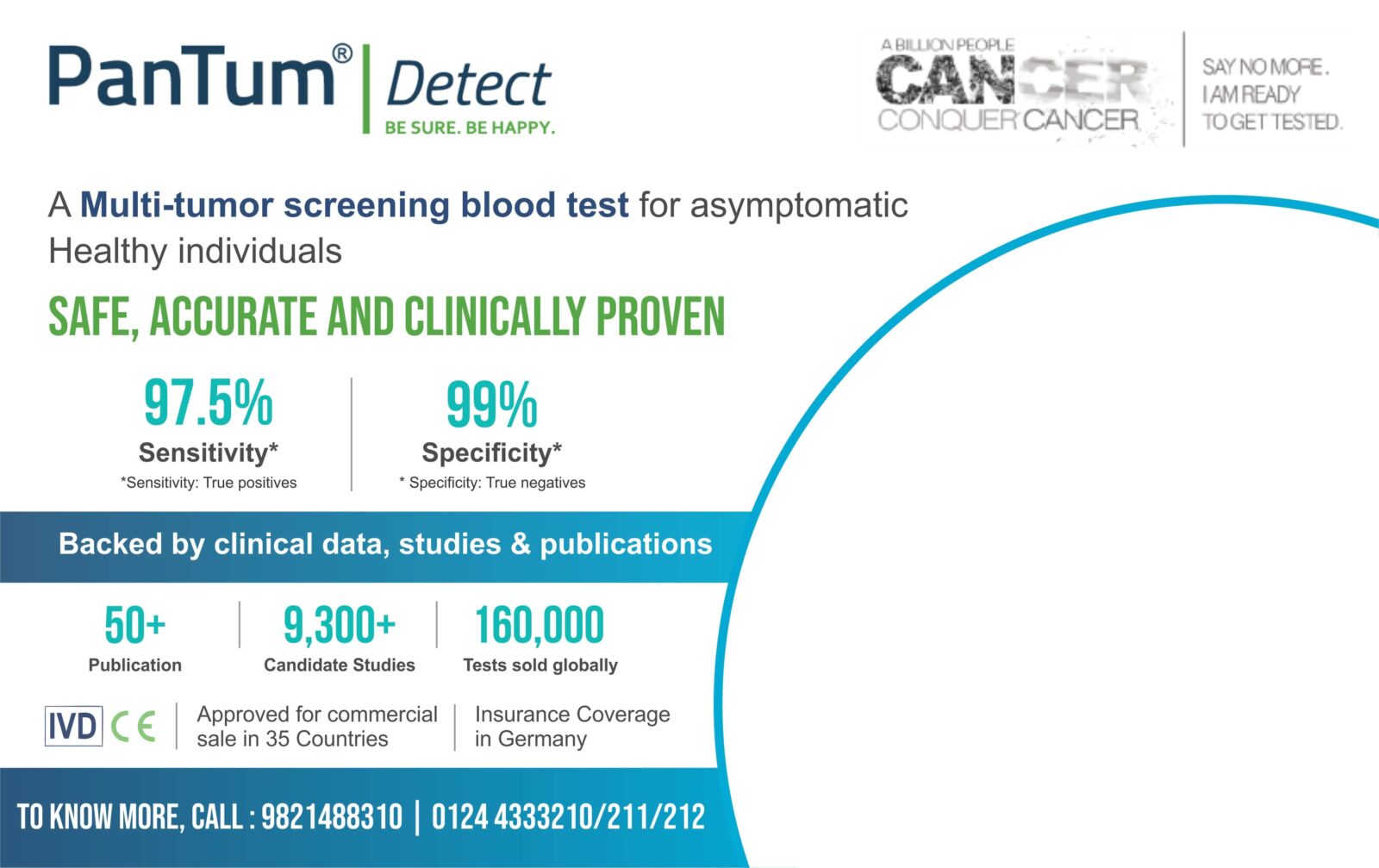
Obesity and Risk of Cancer: The Trend is Disastrous!
With an increasing global burden of obesity, there is a proportionate growth in the evidence base of the link between obesity and cancer. There have been recent researches that showed an increase in cancer mortality by 10% with an increase of 5% in body mass index (BMI). Pooled analyses done in 2005 worldwide indicated that there are 937 million adults who are overweight and 396 million adults who are obese.
The international agency for research on cancer (IARC) concluded there is strong evidence of an association between obesity and cancer, particularly colon, post-menopausal breast, kidney, oesophageal and endometrial. With the current trend ongoing, it is estimated that more than 500,000 new cases of cancer per year will be diagnosed in the United States by 2030.
Many theories have been proposed in the past that have studied the pathology behind obesity and cancer. Insulin-like growth factor, adipokines, C-Reactive protein, and oxidative stress mechanisms all leading to the production of free radicals is the ultimate key behind tumor growth in obese patients. Despite abundant evidence to prove the link between cancer and obesity, only 35% of Americans are aware of being overweight as a risk factor of cancer. Similarly, in the UK, 3 out of 4 people (75%) were unaware of the relationship.
Data also shows reduced cancer incidence and mortality among individuals who lose weight and maintain the loss strengthen confidence in the obesity-cancer link, and also provide a note of hope that weight loss in obese individuals may help in preventing cancer.
Tackling obesity at an early age is a complex issue, which involves a multi-pronged strategy. Starting awareness campaigns about the restrictions in unhealthy and processed foods, fiscal measures, targeted approach in target populations and effective nutritional practices can be one of the many solutions in confronting this issue. It should be emphasized that health campaigns and other informative activities should be invested more vigorously in low socio-economic populations who have more barriers to health education.

Being overweight or obese is the single biggest preventable cause of cancer after smoking, and if no action is taken the number of cancer cases associated with obesity will continue to rise. There is no single approach that can be taken to tackle the increasing rates of obesity and a comprehensive package of evidence-based measures is required to make inroads into this growing problem. It becomes our imperative responsibility to recognize obesity as a global epidemic.











